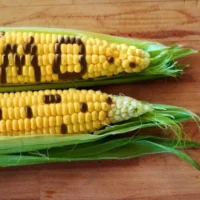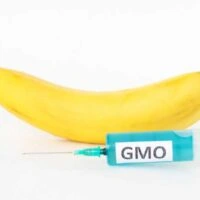In the mid-1990s, the world witnessed the dawn of a revolutionary experiment—genetically engineered foods, commonly known as GMOs. This experiment has continued relentlessly, with Bayer’s recent acquisition of Monsanto and its substantial investments in the American GMO division. While this technological leap has yielded enormous profits for scientists and the synthetic pesticide industry, it has also left us with a lingering question: What are these genetically modified organisms doing to our bodies, particularly our vital internal organs? Independent researchers, driven by this question, have delved deep into the world of GMO crops. Shockingly, GMOs don’t undergo safety testing beyond 90 days, and many studies are funded by the very industry that profits from them.
Critics tirelessly highlight numerous studies indicating the potential harm caused by GMOs and Roundup, a widely-used herbicide. However, there’s more to this story. Some individuals have embarked on their own experiments, using an unlikely group of judges—the animal kingdom. These experiments, like the one we’re about to explore, have revealed some startling insights. Animals, it seems, have a keen sense when it comes to GMOs. In a fascinating turn of events, certain creatures are showing a strong aversion to genetically modified corn. This revelation brings us to the Institute for Responsible Technology, a research organization dedicated to unveiling the often-overlooked dangers of genetically engineered crops.
An Experiment with GMO and Non-GMO Corn
The farmer in question, a close friend of Jeffrey M. Smith, conducted a straightforward experiment involving two bags of corn—a genetically modified one and a non-GMO counterpart. The setting was a workroom and the participants? Mice, those resourceful little creatures known for their knack for finding food. What transpired was nothing short of intriguing.
Both bags of corn were fair game for the mice, and they didn’t hesitate to take a bite. However, their discerning palates quickly led them to a surprising conclusion. After a few nibbles of the GMO corn, they decided it was not to their liking and abandoned it. On the other hand, they devoured the non-GMO corn with enthusiasm.
This peculiar behavior isn’t confined to mice alone. Over time, numerous reports have surfaced of various animals—from squirrels and geese to elk, deer, raccoons, buffalo, and chickens—displaying a distinct aversion to GMO corn. The question that naturally arises is, “Why are these animals turning away from genetically modified corn?”
Understanding the Science Behind GMOs
To begin to answer this question, we must delve into the science behind GMOs. Most genetically engineered corn produces an insecticide called Bt toxin. This toxin is incorporated into the cells of GMO plants and serves as a natural defense mechanism. When insects feed on these plants, the Bt toxin can puncture holes in their guts, ultimately killing them. However, what’s fascinating is that this toxin isn’t selective; it can impact not only insects but also mice, rats, and even human cells.
In addition to the toxin, GMO corn is often sprayed with herbicides like Roundup, which has been linked to cancer in humans. These chemicals add another layer of concern for anyone consuming GMO crops.
What Are We Really Consuming?
Beyond toxins and herbicides, some studies suggest that genetically engineered corn may contain other harmful substances, such as formaldehyde and Gamma-Zein, a unique allergen found only in GMO corn. Even cadaverine—a compound responsible for the smell of decaying bodies—has been detected in some samples. While these findings are still being explored, they raise important questions about the safety of GMO corn.
The farmer’s experiment may not have been a controlled study, but it certainly sparks curiosity. If animals instinctively avoid GMO corn, perhaps we should also pay closer attention to the food choices we make for ourselves and our families.
Implications for Human Health

The behavior of animals avoiding GMO corn sparks a thought-provoking question: Could there be potential risks associated with genetically modified organisms for human consumption? While we’re not mice, rats, or geese, understanding the implications of these animal reactions on our own health is crucial.
1. Limited Safety Testing
One of the most concerning aspects of GMOs is the limited safety testing they undergo. Typically, these genetically engineered crops are only tested for a period of 90 days, leaving many long-term effects unexplored. What’s more, a significant portion of these studies is funded by the very industry that profits from GMOs, which raises concerns about their impartiality.
2. Bt Toxin and Human Health
As mentioned earlier, genetically engineered corn produces Bt toxin as a natural insecticide. While it effectively combats pests, it can also pose risks to humans. Studies have shown that Bt toxin can damage human cells, raising questions about its safety for consumption.
3. Roundup and Carcinogenic Concerns
Beyond the Bt toxin, GMO corn is often sprayed with Roundup, a herbicide linked to cancer in humans. The potential carcinogenic effects of Roundup have been the subject of ongoing debate and litigation, leading to concerns about its presence in our food supply.
4. Other Potentially Harmful Substances
Genetically engineered corn may contain other potentially harmful substances, including formaldehyde, Gamma-Zein (an allergen unique to GMO corn), and even cadaverine—a compound associated with the odor of decomposing bodies. While the quantities may be small, their presence raises questions about the overall safety of GMOs.
5. The Importance of Informed Choices
In light of these concerns, making informed choices about the food we consume becomes paramount. It’s essential to be connected to the sources of our food and to consider alternatives that align with our health and well-being. While the scientific community continues to explore the potential risks of GMOs, we can exercise our own judgment by opting for non-GMO options when possible.
Our health and the health of our families are too precious to take lightly. The behavior of animals avoiding GMO corn serves as a thought-provoking reminder that we should pay attention to what we put on our plates.
Tips for Making Informed Food Choices

Navigating the world of genetically modified organisms (GMOs) can feel overwhelming, but with a few practical strategies, you can take control of what you and your family eat.
1. Understanding Labels and Going Organic
The first step is understanding food labels. Terms like “Non-GMO Project Verified” and “Certified Organic” are clear indicators that you’re selecting foods free from GMOs. If you’re unsure, opting for organic products is always a safe option, as organic standards prohibit the use of GMOs. This small shift can make a big difference in reducing your exposure.
2. Local and Homegrown Alternatives
Another way to reduce the chances of consuming GMOs is by supporting local farmers and markets. Locally sourced foods often have fewer processed ingredients, and you can form a direct connection with those who grow your food. If you want even more control, consider starting your own garden. Growing fruits and vegetables at home ensures you know exactly what goes into your food, giving you a GMO-free harvest.
3. Know the High-Risk Crops
Being aware of high-risk crops is essential in making smarter food choices. Corn, soy, canola, and cotton are often genetically modified, so take extra care when buying products containing these ingredients. Reducing your intake of heavily processed foods is another smart step, as they are more likely to contain GMOs. Instead, focus on whole, natural foods that are easier to trace back to their source.
4. Stay Informed and Engage
Keeping up with the latest research on GMOs empowers you to stay ahead of any new developments. Supporting GMO labeling initiatives and advocating for greater transparency benefits not just you but the wider community. By raising awareness among friends and family, you help others make better food choices as well.
5. Exploring Alternatives
For those looking to reduce their exposure further, exploring plant-based options or ancient grains is a great route. If you consume animal products, consider organic meat and dairy, as these animals are typically fed non-GMO diets. Small changes like these can lead to a healthier and more conscious approach to food.
Embracing Health and Conscious Choices
The discussion around GMOs isn’t just a scientific debate—it directly impacts our health. The behavior of animals avoiding GMO corn serves as a reminder that nature often signals potential risks.
While research on the long-term effects of GMOs continues, we have the power to make informed decisions about what we eat. By understanding labels, choosing organic options, and supporting local practices, we can prioritize our health and the health of our families.
Practical steps like these, along with inspiring stories of people improving their well-being through better food choices, highlight the positive impact we can achieve. Whether it’s overcoming health challenges, connecting with nature, or advocating for non-GMO living, the potential for change is real.
Being mindful of where our food comes from and making informed choices is essential for a healthier lifestyle. Every decision, no matter how small, contributes to our well-being and a more sustainable world.



